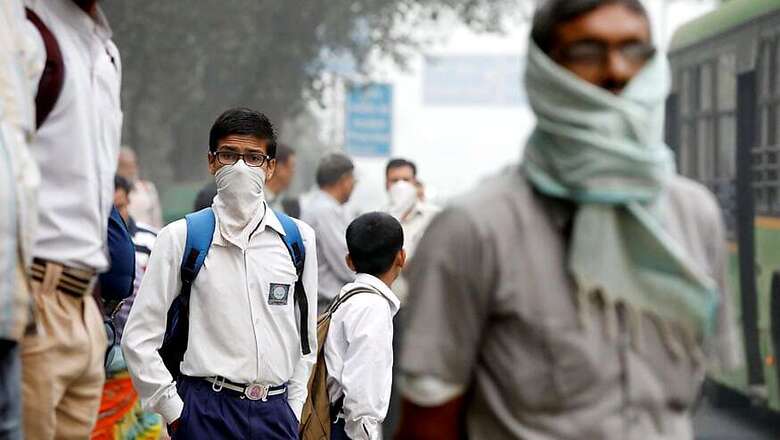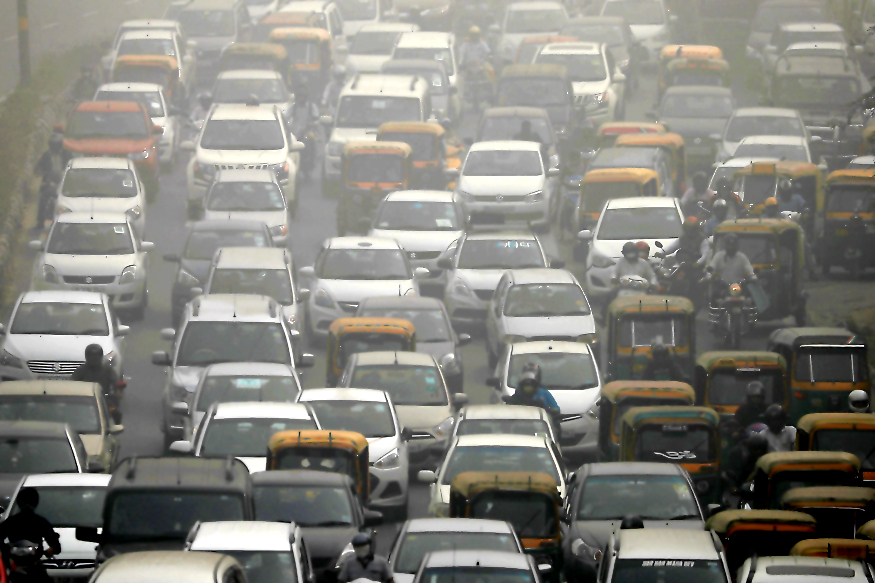
views
Delhi is battling toxic smog yet again. It is not unlikely that we forget about the health emergency in a few weeks. India topped global pollution deaths in 2015, according to a report by The Lancet Commission on Pollution and Health, coincidently released this Diwali. Out of nine million deaths worldwide, 2.5 million die prematurely in India, the research claimed. About two weeks later, another report on global climate change and its impact on health painted further grim picture of India. Data modeling for 2015 showed that India has had over 5 lakh premature deaths, second highest in the world, attributable to air pollution and Particulate Matter (PM) 2.5 concentration in the air.
We lose more people to pollution than we would possibly to a war. Yet, successive governments resort to ad hoc measures, lacking implementation of a long term strategy to ensure clean air to people, aiding their fundamental right to life.
It is evident that knee-jerk solutions won't work anymore. It requires a multi-pronged strategy by executing it with full commitment of all stakeholders.
Sources of pollution are not a mystery. Several studies have been conducted in the last few years and all suggest that burning of coal, biomass and waste, local brick kiln industry, road dust and vehicles are the main sources. The seasonal stubble burning in the neighbouring states escalates the crisis.
We have many successful examples from all across the world to learn from to deal with such an emergency.
Beijing made substantive gains in the run up to and after 2008 Olympics by shutting down industries and power plants a month before the games began, and then strictly implementing Odd-Even number car usage policy, promoting public transport sector, and enforcement of a ban on burning coal and biomass for cooking and heating.
Last December, Paris also implemented its odd-even number car usage policy and as an emergency measure it made all public transport free to counter smog as bulk of it is vehicular pollution.
London uses better technology and higher standards for air quality index and implements a stringent emergency plan by forecasting pollution levels at least 48 hours in advance. However, in India, we have found to be reactive at best.
Few actions have been taken by the governments either on its own will or under pressure from the National Green Tribunal (NGT). Temporary closure of NTPC coal-fired power plant, odd-even number car policy, taxing trucks entering city limits, a temporary ban on registration of large diesel vehicles and use of generators, and a half-hearted implementation of Supreme Court ban on the sale of fireworks in Delhi have not yielded desired results.
The immediate challenge of stubble burning needs to be tackled urgently yet sensitively.
Farming community that is already reeling from multiple crises can't be coerced to stop the practice without adequate compensation.
As Devinder Sharma, an agricultural scientist and distinguished trade policy analyst, highlighted in his blog last year, the issue of stubble burning is also linked to mechanised harvesting. It may not be possible to go back entirely to manual harvesting but technological improvement in combine harvesters through a strong policy measure is a clear possibility.

Vehicles drive through heavy smog in Delhi. (Photo: Reuters)
Other long term measures include:
- A clean, safe, reliable and more importantly convenient public transport that also attracts middle and upper class commuters squarely.
- Promote public awareness on the use of public transport and pro-environment behaviour
- Higher clean fuel standard for all cars and swiftly shifting to electric cars, as already announced by NITI Ayog, a bold step welcomed by the global community.
- Enabling infrastructure to promote safe cycling. A few experiments have been undertaken but scaling them up quickly is key.
- Improving garbage collection and waste management. It requires a systemic approach by the government, responsible citizen behaviour and better involvement of rag-picking community.
- Adopting and enhancing clean and renewable sources of power generation such as solar. The huge potential of rooftop solar power has not yet been fully harnessed.
- Using better technology to anticipate and emergency action plan to tackle temporary pollution levels due to uncontrollable climatic factors.
All this can only be made possible with adequate budgetary allocations, coordination with neighbouring states and better enforcement of policies and measures.
In the German city of Bonn, luckily where my lungs are getting good clean air, we are campaigning for ambitious and urgent actions to fight climate change - another man-made crisis caused by pollution from the burning of fossil fuels.
It is high time we show utmost political will and people's movement to win over the war on pollution.
— Author, Global Lead on Climate Change at ActionAid International, is attending the Climate Change Conference at Bonn. He tweets @harjeet11. Views are personal


















Comments
0 comment